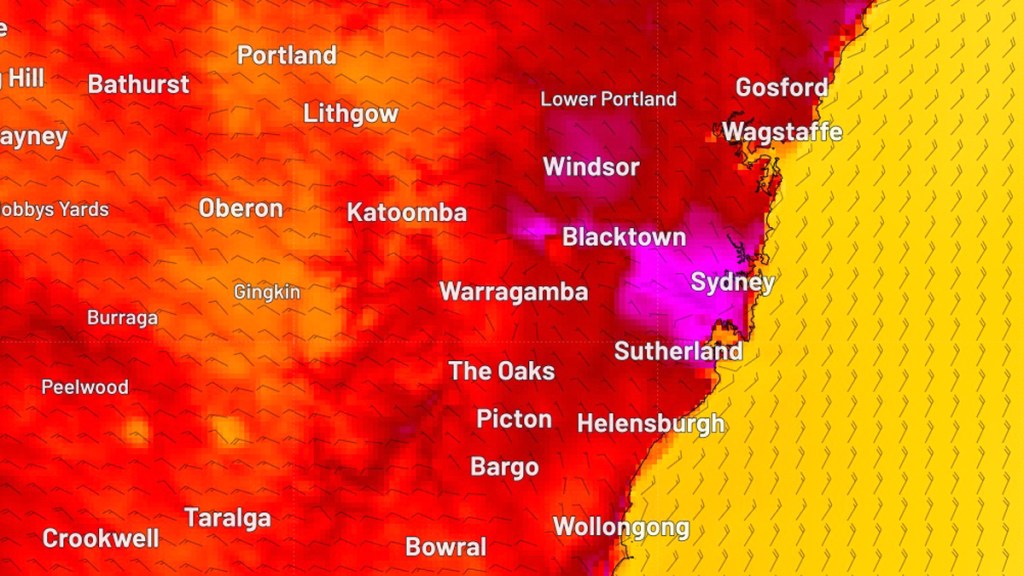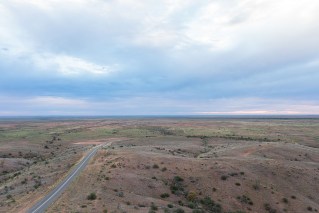As Australia braces for a heatwave, 2023 is officially the hottest year on record


2023 is officially the hottest year on record, according to the EU's climate body. Photo: Getty
As Australia feels the effects of a sweltering heatwave, this year is officially the hottest on record.
The Copernicus Climate Change Service, the European Union’s earth observation body, announced the grim news as parts of Australia anticipate 40-degree heat.
Simon Bradshaw, director of research at the Climate Council, said this year will now be the warmest year on record “by quite some margin.”
“It means that the last 10 years have all been within the top 10 warmest years,” he said.
“We are seeing a very clear upward march in average global temperatures.”
Smithville, a New South Wales town near the South Australian border, reached 46.4c on Thursday as the national heatwave triggered fire warnings around the country.

Sydney is set to swelter throughout Saturday. Photo: Weatherzone
Major General Peter Dunn, member of Emergency Leaders for Climate Action and former Commissioner for the ACT’s Emergency Services Authority, said Australia is looking at “a very dangerous period.”
“Our temperatures are going through the roof and it’s extremely dangerous for bushfires,” he said.
“We have to adapt to this being the new normal, but we also need to mitigate, and the only way we can do that is by cutting emissions.”
November was 1.75c warmer than pre-industrial times and two days during it were more than 2c hotter, a first in recorded history.
Floods, bushfires, more floods
Australia is currently experiencing several extreme climate events, with Cyclone Jasper intensifying into a category-four storm off the coast of Queensland.
Dunn said while Australia is better prepared compared to the 2019 Black Summer fires, regional and remote communities are still at risk.
“Communities have been hit by floods, bushfires, floods again and again, and there is still a mammoth recovery process underway,” he said.
“These events are occurring very rapidly and frequently, and it is having a massive impact on communities.”
He said more investment, manpower and urgency need to happen if those communities are to avoid the worst-case scenarios across the bushfire season.
“The population across the board expects action, is demanding action, and they can see there is a fairly simple way of funding this through cutting subsidies for fossil fuels,” he said.
“Implement the recommendations of the Royal Commission, stop subsiding the fossil fuel companies: Do you need any more proof that our climate has changed?”
According to the Copernicus Climate Change Service, 2023 has been 1.46c hotter than pre-industrial levels, threatening to cross the threshold of 1.5c set in the Paris Agreement.
Bradshaw said the impact of climate affects everybody, but those impacts are often felt unevenly.
Passing the threshold
“We see places, like some parts of Australia, already experiencing much more than the global average temperature increase,” he said.
“At the same time, it’s usually communities in the hotter parts of the country that have fewer resources to adapt to the changes and stay safe.”
As world leaders meet at Cop28 in Dubai, it has been revealed that carbon emissions are continuing to rise to record levels.
Dunn said it is time for leaders to take action after years of failure.
“They’ve dropped the ball and they’re ducking for cover and so they should,” he said.
“We spend $11.1 billion a year subsidising the fossil fuel industry, just one billion of that would go a long way towards ensuring emergency services get aerial firefighting equipment and what they need.”








